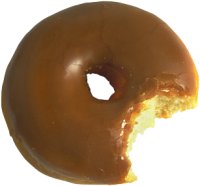 A high-fat diet and sedentary lifestyle may predispose men to prostate cancer through effects on serum factors such as hormones. The Pritikin low-fat, high-fiber diet and exercise program, on the other hand, may reduce the risk of clinical prostate cancer, says R. James Barnard, Ph.D. Dr. Barnard, of the Department of Physiological Science and the UCLA Division of Clinical Nutrition, Department of Medicine, will present evidence that links a low-fat diet and exercise to reduced prostate cancer cell growth at the 2000 American Physiological Intersociety Meeting, "The Integrative Biology of Exercise," being held September 20-23, 2000 in Portland, ME.
A high-fat diet and sedentary lifestyle may predispose men to prostate cancer through effects on serum factors such as hormones. The Pritikin low-fat, high-fiber diet and exercise program, on the other hand, may reduce the risk of clinical prostate cancer, says R. James Barnard, Ph.D. Dr. Barnard, of the Department of Physiological Science and the UCLA Division of Clinical Nutrition, Department of Medicine, will present evidence that links a low-fat diet and exercise to reduced prostate cancer cell growth at the 2000 American Physiological Intersociety Meeting, "The Integrative Biology of Exercise," being held September 20-23, 2000 in Portland, ME. Prostate cancer is the second most common cancer in American men, after non-melanoma skin cancer; it is the second leading cause of death due to cancer, just behind lung cancer. More than l80,000 new cases are expected to be diagnosed this year, and an estimated 32,000 men will die.
International death rates from prostate cancer can vary widely. Asian countries have the lowest rates, while the United States has a 15-fold higher rate. Furthermore, Chinese and Japanese men who immigrate to the U.S. have an increased incidence and mortality from prostate cancer compared to men in their native countries. These studies suggest that environmental factors associated with Western culture may promote the development of clinical prostate cancer.
Numerous epidemiological and animal studies have implicated dietary fat as one important environmental factor. Per capita fat consumption has been linked to prostate cancer mortality in several countries, and a low-fat diet has been shown to significantly slow the growth of prostate tumors in immune-deficient mice. Additional studies have demonstrated that men who are physically active have a reduced risk for prostate cancer compared to physically inactive men. A low-fat diet combined with exercise also affects serum hormones which may have an impact on the risk of prostate cancer.
Given the high prevalence of obesity, sedentary lifestyle, and the known effects of diet and exercise on circulating hormones, Dr. Barnard--a consultant with the Pritikin Program--and his colleagues designed a study in which men underwent a low-fat, high-fiber diet and exercise intervention. In the study, serum was obtained from 13 overweight men between the ages of 42 and 73 who underwent the Pritikin residential, 11-day, low-fat, high-fiber diet and exercise program, as well as from 8 men who had complied with the same regimen for a mean of 14.2 years.
The men were allowed to eat as much as they wanted and meals were served buffet style. Prepared meals contained less than 10 percent of calories from fat, 15-20 percent of calories from protein, and 70-75 percent of calories from carbohydrate (primarily in the form of vegetables, fruits, legumes, and whole grains). Protein was primarily derived from sources other than animal, with the exception of nonfat milk served daily and small amounts of fish or fowl. The diet contained less than 50 mg of cholesterol and 4g of sodium chloride per day. Alcohol, tobacco, and caffeinated beverages were not allowed.
The exercise program consisted of walking at a training heart rate for 30-60 minutes, 4-5 days per week, and once or twice a week for 40-60 minutes below training heart rate (the training heart rate was defined as 70-85 percent of the maximal heart rate obtained during a treadmill, exercise tolerance test given before the program began).
Twelve-hour fasting blood was drawn from the subjects on days one and eleven of the regimen and serum was separated from the blood by centrifugation. Serum was also obtained from eight men between the ages of 38 and 74 who had followed the same diet and exercise regimen for a mean of 14.2 years. The serum was then used to stimulate the growth of prostate cancer cells (LNCaP) in cell culture.
The results of the study showed a significantly reduced growth--30 percent--of LNCaP tumor cells following the 11-day program. Serum from the eight men who had followed the program on a long-term basis showed an even further 15 percent reduction in the growth of LNCaP cells.
The results also showed that the men who participated in the 11-day diet and exercise program had significantly reduced body weight and body mass index (BMI) after the regimen (although they were still considered overweight). Their total cholesterol, LDL-cholesterol, triglycerides, and fasting glucose were all reduced significantly (HDL-cholesterol did not change significantly in the 11-day subjects). The long-term participants had significantly lower weight, BMI, and triglyceride levels than the other subjects.
Though additional research is needed, says Dr. Barnard, these findings confirm health guidelines that recommend a very-low-fat, high-fiber diet, and exercise as an important approach for prostate cancer prevention.

